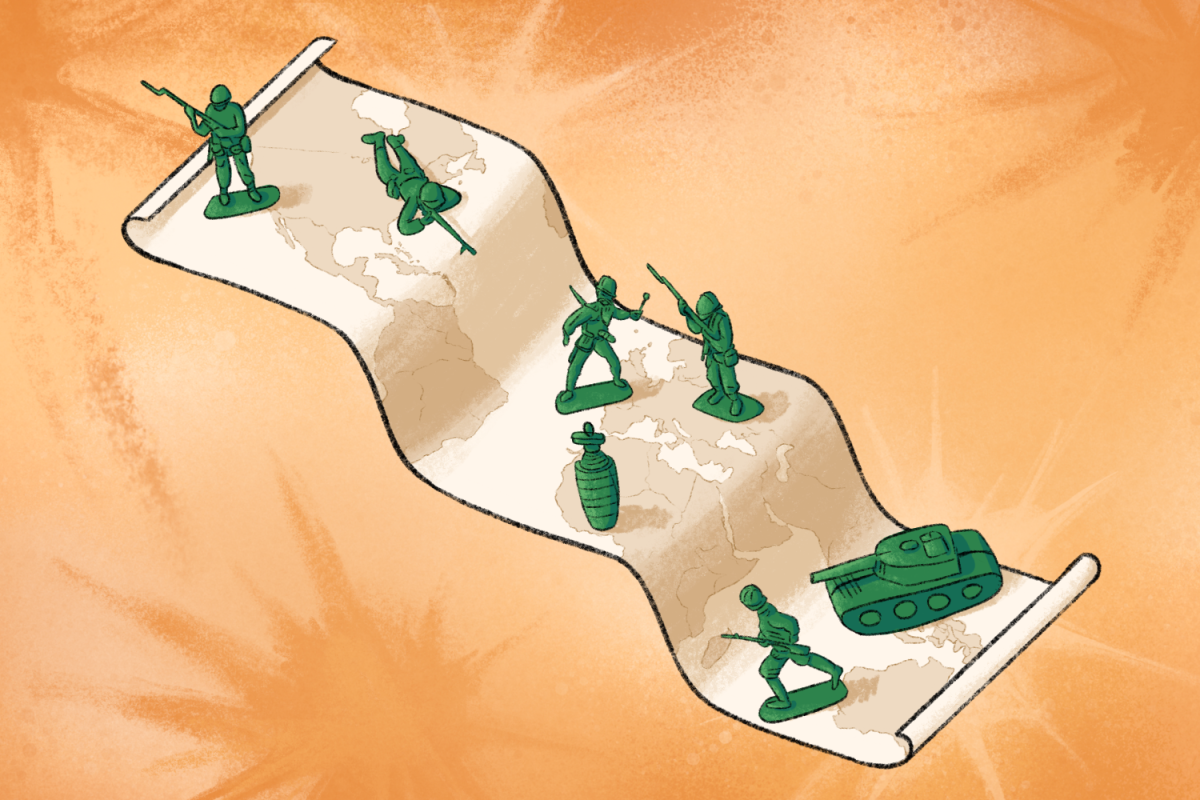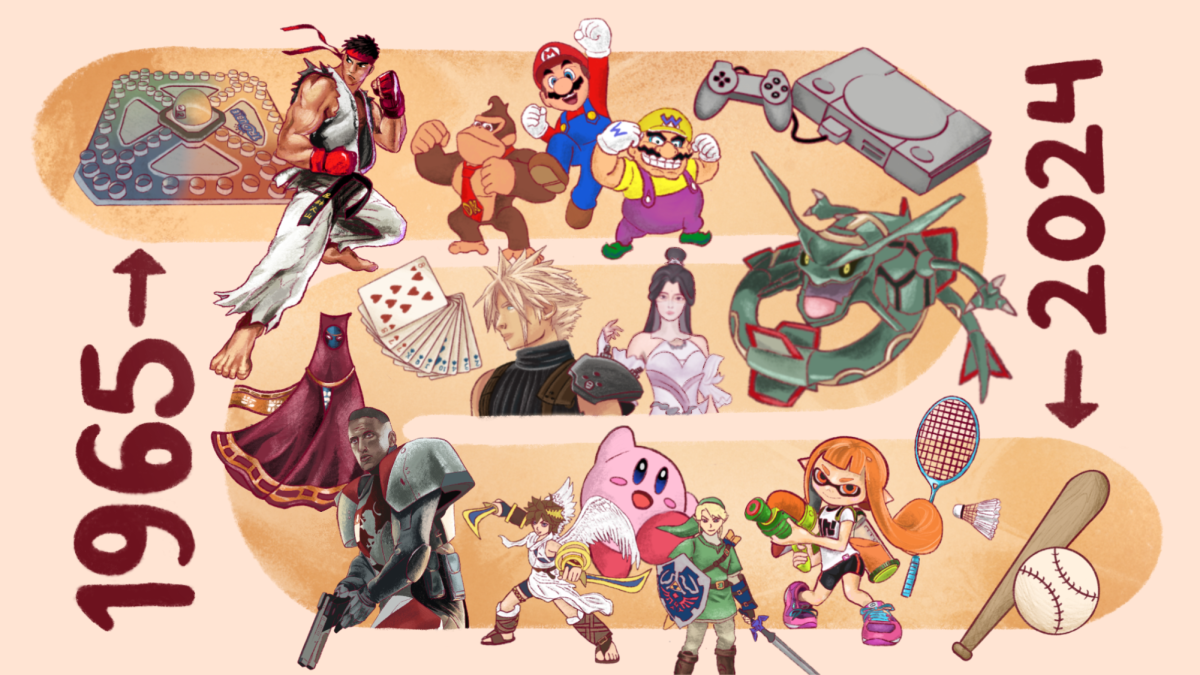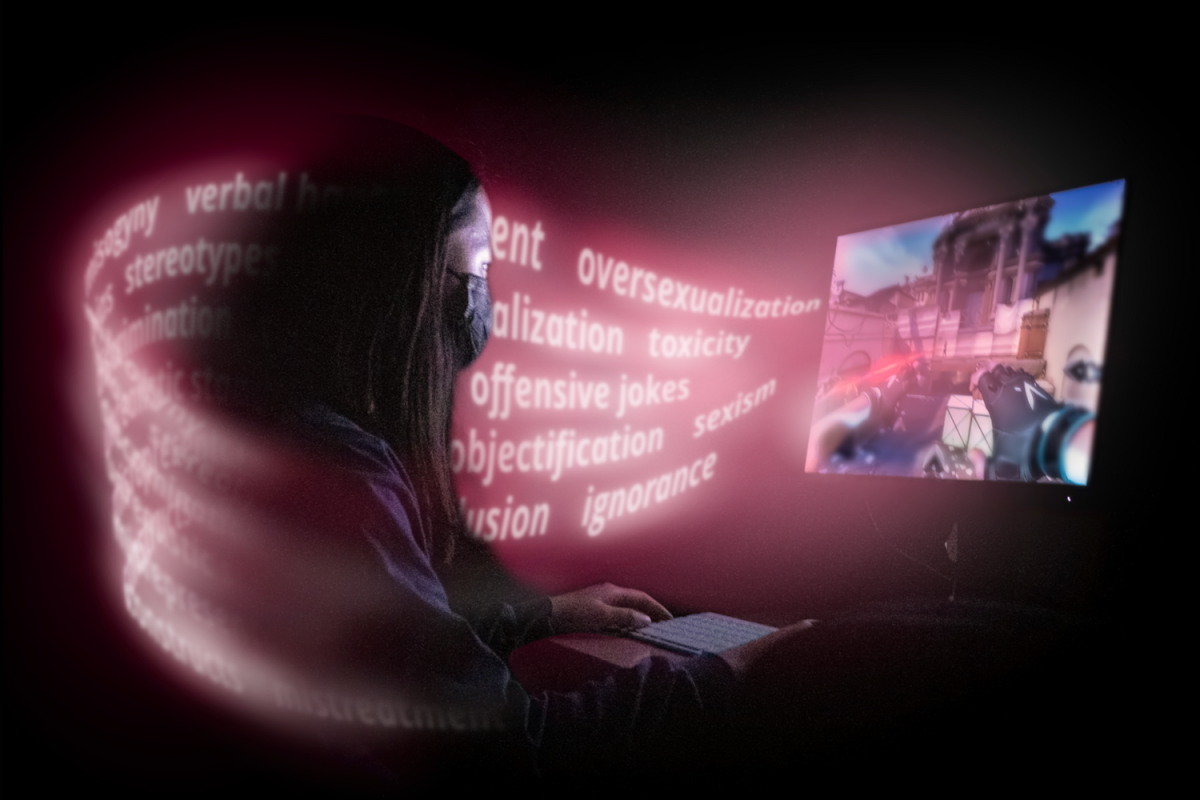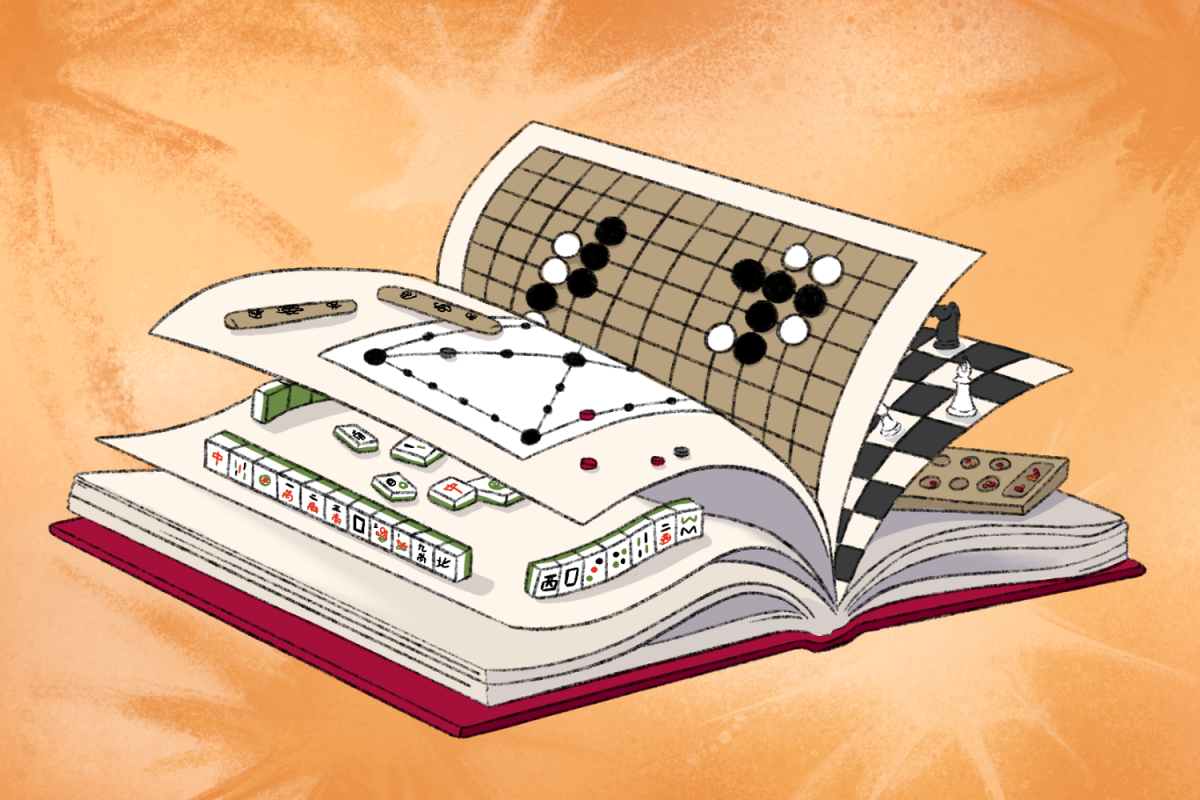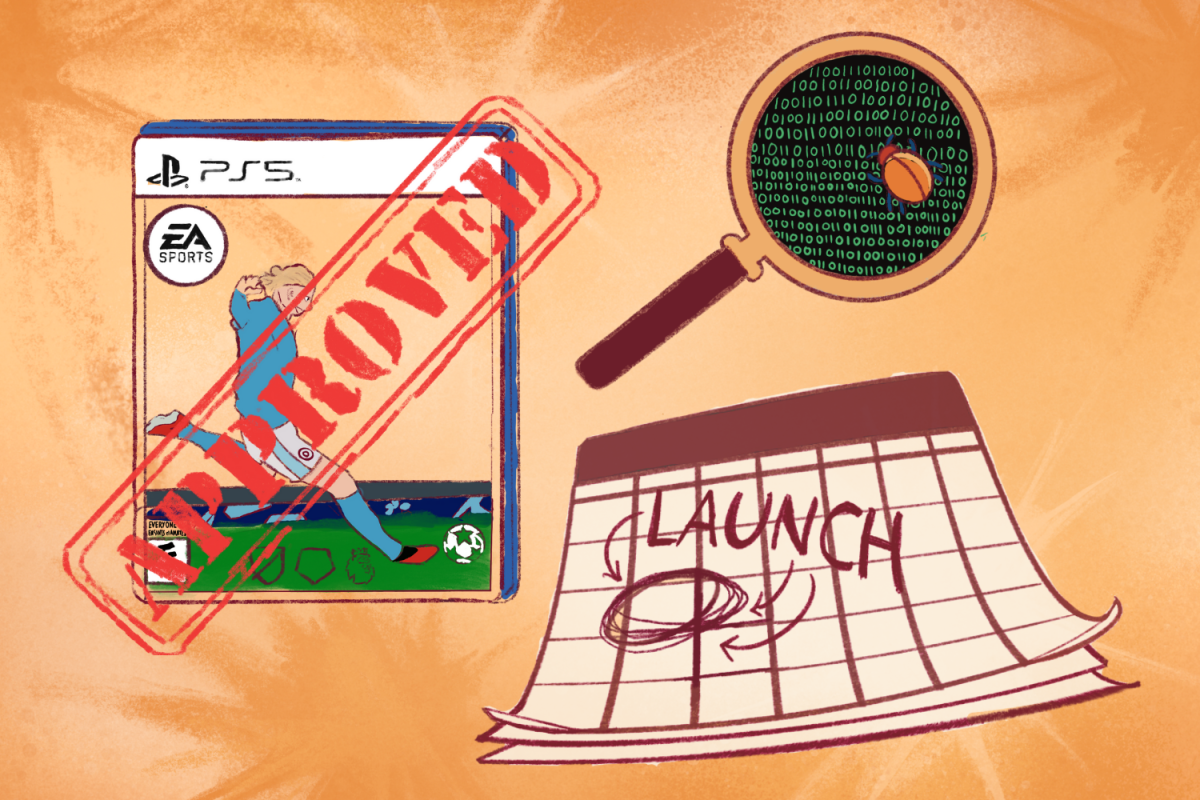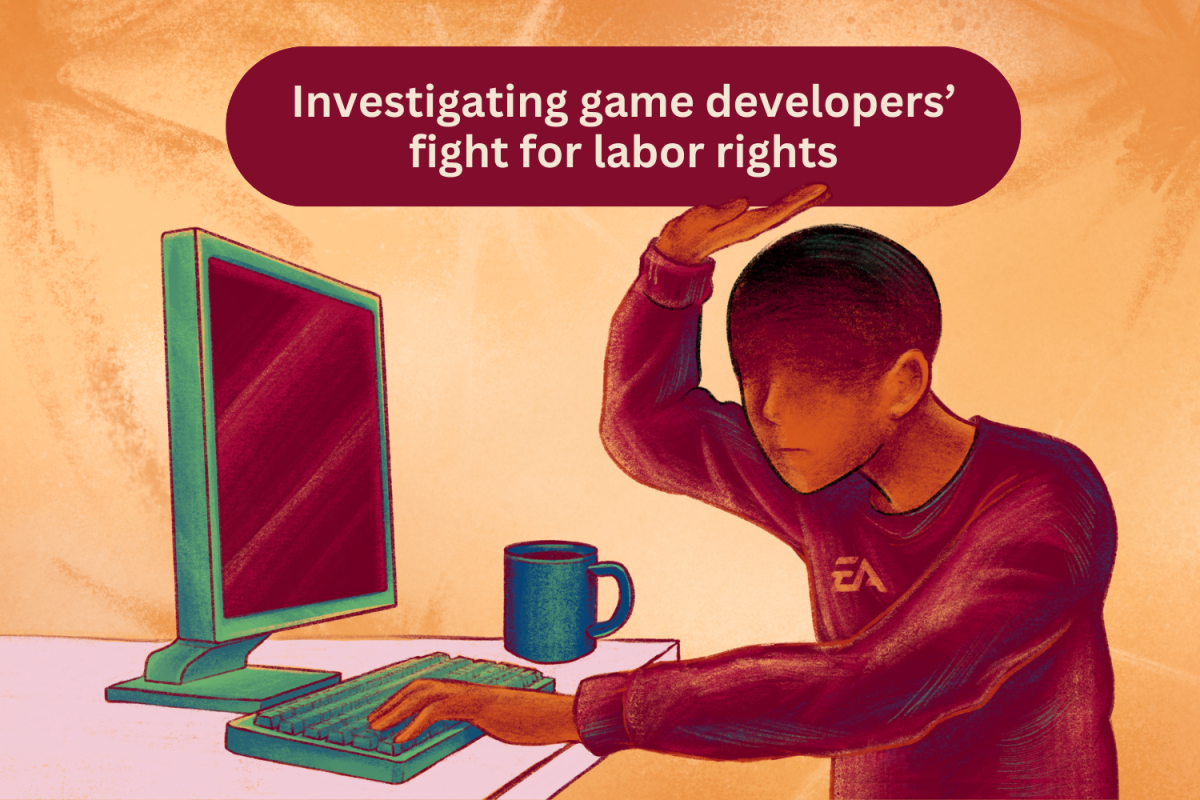When online mobs flood mainstream discussions every couple of years after the latest “woke, social justice warrior, liberal-agenda-pushing” video game releases — wanting to keep politics out of video games — what they truly mean to say is “we don’t want politics we don’t agree with in video games.”
“These kinds of things tend to upset people because it suggests to them that there’s a politics now present that wasn’t there before,” said Soraya Murray, an associate professor in the Film & Digital Media Department at UC Santa Cruz.
When considering this call to keep politics out of video games, it becomes evident that the discussion extends beyond the exclusion of certain political viewpoints; it raises questions about the intricate relationship between games and the spectrum of political bias within the industry. Ultimately, developers should embrace political messaging in their art. However, the responsibility swings both ways: consumers should also approach politically charged games in good faith, instead of resorting to online boycotts and harassment, which can become discouraging and a financial burden for developers.
What many fail to realize is that politics and games are inseparable — even if political commentary is not explicitly clear. Games are created and developed by humans who interact with and are affected by politics in their daily lives. Those biases inevitably slip into all aspects of their life, including work.
Games are also a significant part of the cultural fabric of today, with almost 65% of Americans, or 212 million people, playing video games at least one hour a week, according to an Electronic Software Association 2023 report. The report also touched on the diversity of players, with 53% and 46% of players identifying as male and female respectively, and the far cry from the industry’s early days of player and developer dominance by those of Caucasian descent. With these kinds of numbers, it’s no surprise that games have become a recurring battleground for the culture war.
“Other games might not be so overt about it, but certainly a game like “Tom Clancy’s The Division 2,” is dealing with themes about the fall of the capital,” Murray said. “It’s hard not to imagine that they don’t have a political perspective, even though the official line from the company says otherwise.”
Politics in games are everywhere; they just happen to be invisible unless they are a flavor of politics that a person disagrees with. Video games are an inevitable reflection of the political realities in the time period during which they were made. Games such as “Call of Duty” have come under fire for their heavy reliance on “Arabistan,” portraying Middle Eastern society as a place where people are either traumatized victims of endless war or terrorists, with little distinction in between. This trend, which sprouted out of the post-9/11 political climate of governmental surveillance, racism and willingness to resort to militaristic violence, mirrors the ongoing conflicts in the region that have intensified since the onset of America’s Global War on Terrorism almost 23 years ago. Increasingly, many have argued that this warped depiction of Middle Eastern peoples has contributed to apathy and ignorance toward the ongoing conflicts in Gaza.
Consumer perceptions of what constitutes a political video game are incredibly warped. Recent controversies over so-called politics in video games have typically surrounded the inclusion of diverse characters and storylines. Many gamers were quick to reject critically acclaimed titles like “The Last of Us 2,” upon finding out that the lead character was lesbian. The latest Bethesda Games entry, “Starfield,” was met with the cries of angry Skyrim fanboys when they found out that the character creator included an option to select preferred pronouns. When gamers get caught up in these surface-level details, they can lose sight of what makes video games so special in the first place — the powerful stories these games are trying to tell.
“The Last of Us 2” attempts to tackle the destructive cycle of war, exploring the political realities of a post-apocalyptic landscape and the violence innate to the human condition. “Red Dead Redemption II” isn’t just a game about cowboys and outlaws; it’s a snapshot into the historical struggle of American culture and identity at the cusp of the 20th century. Every game has a story waiting patiently within its virtual world — it is just a question of whether gamers are willing to experience something that may contain a different worldview from their own.
Any way you slice it, harassing or otherwise attempting to hurt developers because they included politics gamers may not agree with, shouldn’t be condoned. Beyond harming the commercial aspects of games, these types of actions have a disproportionately negative effect on individual developers themselves. Due to the highly cyclical nature of game development, a commercial failure could very well spell the end of a studio and subsequent job losses for developers, in a space that, in recent years, has resorted to mass layoffs.
“The big budget video game, or AAA, space is very much skewed because of the amount of money involved — it’s very much a volatile space,” said Dr. Marc Olano, associate professor of Computer Science and Electrical Engineering and director of the Computer Science Game Development Track at the University of Maryland, Baltimore County.
Even games that may seem inherently unpolitical can be used to organize for impactful political causes. During the COVID-19 pandemic, many found comfort in connecting with others in “Animal Crossing: New Horizons.” However, it gained attention for its unexpected role as a platform for virtual protests and political expression. In April 2020, players in Hong Kong utilized the game’s features to protest a proposed Chinese Extradition Law. Protestors, afraid of retribution, often used these covert means of communicating through video games to avoid traditional surveillance mechanisms used by the Chinese government.
The use of “Animal Crossing” as a medium for political expression showcases the versatility of these virtual worlds in providing a platform for social interaction and commentary. The game exemplifies how digital platforms can be harnessed for societal engagement and protest when a repressive government opposes democracy.
However, the ability of big-budget games to truly embrace more explicit political messaging is often inherently diluted by corporate inefficiency due to a lack of communication between companies’ divisions. Additionally, these games often carry the responsibility of amassing massive profits to sustain their publishers and studios. To do that, games need to be able to maximize marketability for the broadest possible audience. This can mean anything from localizing content to including diverse characters and publicity to deny that their games include political messaging. One such developer, of the critically acclaimed “Wolfenstein” series, even went as far as to deny that political commentary existed in their game — one that at its core is about killing Nazis and liberating a fictional America from the grips of fascism.
“In the smaller and indie games, I think you do tend to see more messaging and positions because they don’t have hundreds of millions of dollars at stake,” Olano said. “Often, for the people developing them, it may be as much a passion project as a commercial project.”
Unlike games in the AAA space, indie games have smaller audiences and aren’t as commercially constrained. This can give developers more creative control and focus over the messages they want to convey, and consumers will be able to experience unique and innovative gameplay mechanics, narratives and artistic styles that may not be as readily explored in mainstream titles. Recognizing the commercial limits of larger publishers, it is understandable why they would want to avoid including political messaging, among other factors that could affect sales.
Many continue to argue that consumers want bliss, not politics when they enter virtual worlds. They contend that political narratives, characters, or themes in games only foster conflict and division, mirroring aspects of the real world from which they initially sought to escape by playing games. However, players’ experiences while pursuing escapism can be enhanced by embracing political themes or content, adding depth and complexity to their immersive worlds. What is “Wolfenstein” without a deconstruction of the Nazi ethos? Or “Detroit: Become Human” without parallels to the Civil Rights movement?
Making games is an art form, and because of that, developers can and should embrace the messages and stories that they want to tell the most. Similarly, gamers should approach games with an open mind, recognizing that video games, like any other form of art, have the potential to explore political narratives and themes. Video games can serve as a powerful means of expression and engagement, and a willingness to embrace diverse perspectives and political messaging offers a more compelling gaming experience.
“I think it’s really important to continue to study and dissect video games,” Murray said. “To do so doesn’t take the fun out of games — rather, it elevates the compelling stories that they are trying to tell.”





























































